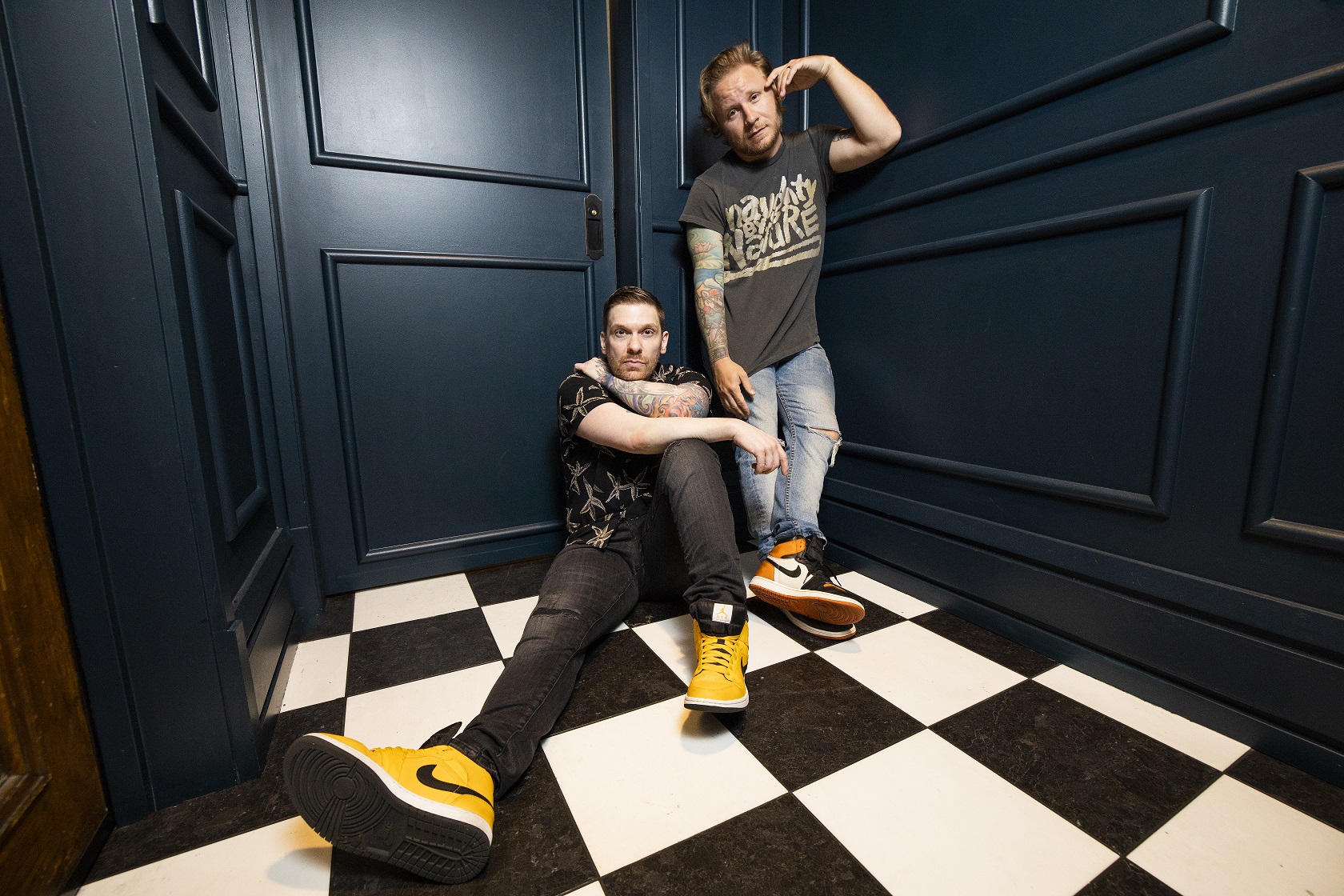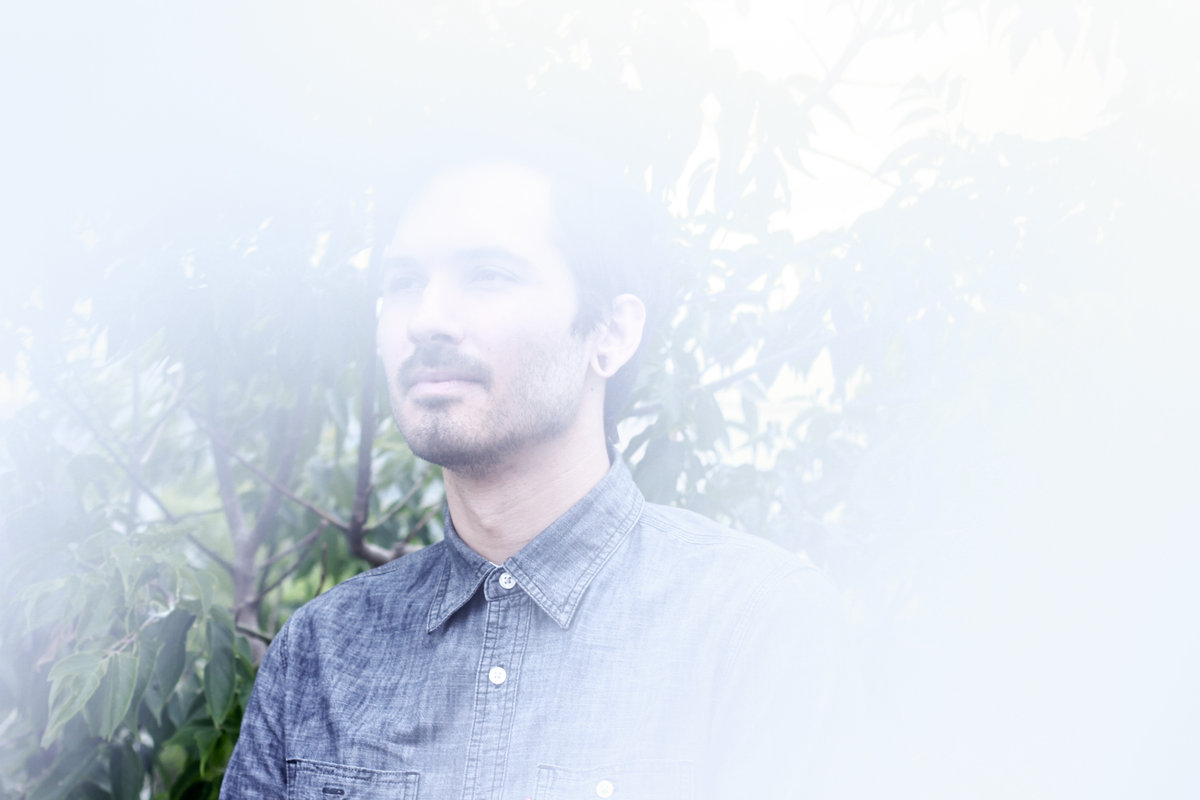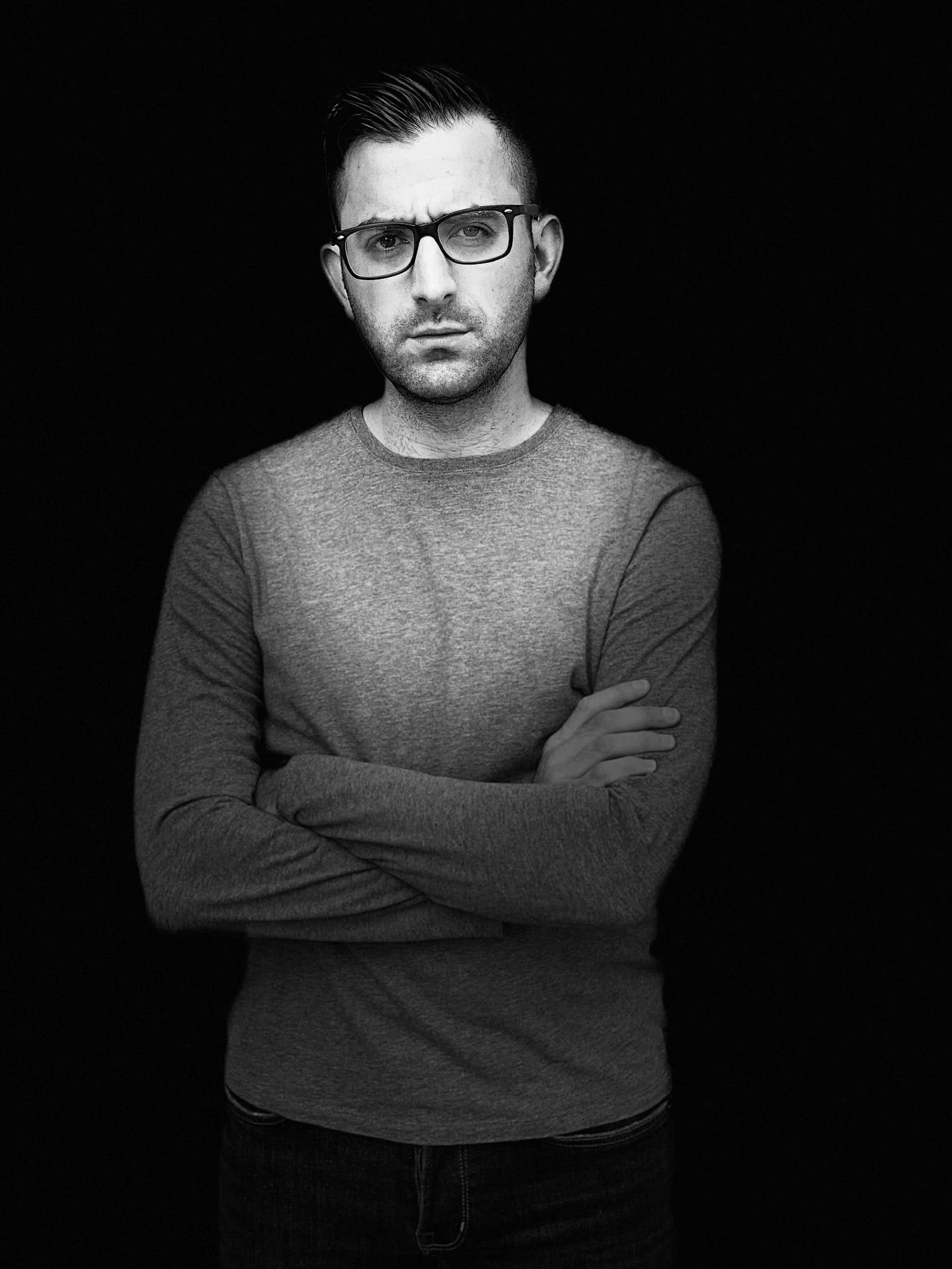Quite literally speaking, there hasn’t been a more consistently successful rock band since the turn of the century than Shinedown. A quick run-down through their accolades will tell you all you need to know: 10 million albums and 10 million singles sold worldwide, 14 platinum and gold singes, and back in August they notched their 16th #1 single on Active Radio (while every single they’ve released has hit the top 5), which is tied for the most ever #1’s in the history of the chart.
Earlier this year, when the world began shutting down as COVID-19 started to spread and we were all left unsure of what was going, Shinedown wanted to play a part in helping. They initially released their latest single “Atlas Falls” as part of an exclusive song and t-shirt bundle for the band’s COVID-19 fundraising effort with all proceeds going towards Direct Relief. They kicked off the fundraiser back in March by donating $20,000 immediately, and recently donated their first installment check of $230,000 to the humanitarian aid organization. All in all, the band has raised over $300,000 to date — and are continuing to do so. The “Atlas Falls” t-shirt can be found here, with 100% of proceeds continuing to go to Direct Relief.
So if you’re wondering, what else does the band have left to accomplish? Perhaps not much, but they’re having a blast doing what they do and still doing it well. While 2020 has been quiet for the band — though they are currently working on album number 7 right now — that hasn’t prevented Shinedown’s Brent Smith and Zach Myers from crafting tunes for us to hear. Earlier this year they announced their plans to release Smith & Myers Volume 1 (released this past Friday, October 9th) and Volume 2 later this month.
It’s not an entirely new avenue for the two, as they’ve previously done some acoustic EP’s in the past. While both Smith and Myers told me on the phone last month that they always knew they wanted to do more acoustic work together, there was one singular moment that lead to these releases. “One day on stage in front of about 2,500 people,” Myers began explaining to me with a chuckle, “the other person on the phone with us here decided to tell everybody we were going to make a double album, without consulting the other member of the band about that.”
While it was a spur of the moment comment on stage, it was a move that promised to hold them both accountable. Once it was put out there, they both knew that it would be a great tool to hold them to their words. However, there was another reason behind it as well: “I personally — and I know Zach feels the same way,” Smith tells me, “This project as far as doing a Volume 1 and Volume 2 and essentially releasing two albums, this feel more like the first Smith & Myers album, because this is for real.” Smith is referencing the previous releases the two have done together, which were more the result of a fan/radio contest that they put together in two days, but explains their pride in how they did these double-albums. “We made a very conscious decision, we said if we were going to do it, that we were going to do it full tilt. We’ve actually gone even further than we originally through we were going to go. Now, we are just ready to let the horse out of the barn man and let it ride.”
While Volume 1 and Volume 2 were more of actual albums for Smith and Myers, they still let fans get involved by submitting requests for songs they wanted to see the two cover. The process of the guys to pick the songs, however, was perhaps not quite what you think. They were looking to do songs from different genres and corners of the music industry, to throw fans and new listeners a few curveballs along the way. “It really came down to the lyrics and the story in the song,” Smith tells me.
The covers are diverse due to the range of musical taste between Smith and Myers, and so they chose to focus on material that had a “wow” factor to it, when fans found out the two would be covering the song. Specifically mentioning their covers of Billie Eilish’s “Bad Guy,” Post Malone’s “Better Now,” R.E.M’s “Losing My Religion,” and how they completely turned over Billy Idol’s “Rebel Yell,” Smith references how Myers usually explains their selection process, “Not being disrespectful in anyway to the people that wrote the songs originally, but Zach says we kind of looked at it as if, ‘If we would have written it, what would we have done with it?'”
Looking back on both volumes, I ask the guys if they’ve got a favorite or one that sticks out to them. I bring up their cover of Oasis’ “Don’t Look Back In Anger” and Mark Ronson and Amy Winehouse’s “Valerie” as two stand out ones, though there’s no shortage of covers to choose from — all of them done well. For Myers, the first cover he brought to the table was the aforementioned “Losing My Religion” saying, “I thought we could make it really darker and ominous, I knew Brent could deliver that lyric, which is such an important lyric. That song has nothing to do with religion, you know what I mean? I knew he could deliver that and make it believable.” Other favorites of his include “Valerie” and “Unchained Melody.” On the latter, he explains that he was worried due to the amount of times it has been covered and didn’t want their performance to come off as disingenuous. However, he came around after they got together to record it live in the same room tighter. “When we got into the room — that’s probably one of those magical ones on the record just because it is a live performance,” he recalls. “He sings the shit out of it. It’s just really good, I know it’s one of his parents favorite songs, too, so I think there was something personal for him in doing that song.”
Smith confirms that it is one of his parents favorite songs, and that he did want to record that cover for them. He heart warmingly recalls the time he spent with his parents last month and played the two volumes of them, and how his father reacted after hearing “Unchained Melody.” “He said, ‘The reason I love what you and Zach have done here is because you both, it’s very enchanting that you both sound nervous on the song,’ — and he’s right, we were,” Smith says. “But my dad goes, ‘Don’t take that the wrong way, it’s super powerful. But the thing that makes it good is that you can hear the vulnerability in both of y’alls performances.’ I thought it was really cool that he pointed that out.”
Now, Smith and Myers didn’t get together for this project just to do covers. Instead, they wanted to tackle some subjects that they haven’t previously tackled with the machine that is Shinedown. There’s a few songs I wanted to bring up to the guys, and we started by diving into “Not Mad Enough” — which was released back in August with “Rockin’ In the Free World” to announce Volume 1. The song was written after the murder of George Floyd, and serves as one of the more powerful songs between both volumes. And after what they had witnessed along with the rest of us, the song essentially came naturally.
“We talk about it all the time in the band,” Myers explains on “Not Mad Enough,””You don’t want to go in when the world is changing to such a degree and go ‘Here’s songs about my hardships, things I’ve gone through’ or a break up song. To me [that’s] just trying to pull the wool over an audience’s eyes and go ‘Hey look over here, nothing’s wrong.'” He goes on to explain that for them, they didn’t write it to be a political song, but to simply draw a line in the sand of something that simply shouldn’t have happened. “It’s about a man who should still be alive and Brent says it brilliantly, in the fact that we love that we wrote the song but we shouldn’t have had to write the song,” he finalizes.
The idea for “Not Mad Enough” itself came from Smith, who was in California at the time while Myers was in Tennessee and their producer was in Hawaii. Lyrically it came together pretty quickly, which they describe as usually being a pretty good sign, with this song being no different. Smith also is quick to confirm that is a song they didn’t want to be used politically, because in this instance, they truly believe that the song is truly about right and wrong. “In our industry, and not just in the rock and roll community but in the music industry right now, there’s a lot of artists that are being put into these very interesting boxes and shoved into a corner for being silent. And because they’re looking at, what right do I have to say anything right now,” Smith says.
“It’s not about the political bias or however you want to look at it. What I’m trying to focus on here is that nobody should be silenced to express themselves. That’s why we live in this country, people have lost sight of that. This country is open to everyone, but you have to be aware of it’s not always about you,” Smith says. “But are you going to put out positivity and be a problem-solver, instead of just jumping on the bandwagon and just being a part of a problem, or are you going to actually change things for the better?”
On top of everything, and at the end of the day, Smith and Myers both do what they do because they believe music is a powerful vehicle in life. They’ve long since been a steady form of comfort for their fans through their music, and that’s something they don’t take lightly. Even when things were uncertain in the world, the aforementioned release of “Atlas Falls” was almost a sign of things to come during the year for the two. “What we decided to do was try to create something that gave people their confidence back, that gave people hope, that gave people something tangible that they could hold onto. I’ve said it before and I’ll say it until the day is long, music is a powerful of our human existence,” Smith tells me. “One of my favorite quotes in the entire world is ‘Without music, life would be a mistake.’ Music can heal, man.”
Another standout original song that caught my attention upon listening to the releases is “The Weight of It All,” which is about what’s going on at the borders here in the United States, with parents being separated from their children. In comparison to “Not Mad Enough,” which was an intentional write to represent specifically what it does, “The Weight of It All” was the opposite. “We had started on the music, and Brent kind of had started on the idea lyrically, and by the time we finished it, we just realized what it was [about],” Myers says. “I don’t know how much intent there was to write a song what we end up writing it about, but I think it’s more in the sense of — you know, you see all of this stuff on social media now, people that care about children and save the children and all these things,” he continues. “It’s like, alright, save the children, but not the children who get separated from their parents trying to flee another country.”
It’s another song where they wanted to touch on a subject that was heavy, but also what they felt strongly about, without making a political statement. “It’s not a political thing, this is a right and wrong social issue — it’s not saying who we back for president. It’s saying that this is something that’s wrong with society, and it’s okay to hold up a mirror to society sometimes and go ‘Hey, look at what’s wrong’,” Myers says. “Maybe the people are the problem and the people are the people who can fix it.”
While every original song between Volume 1 and Volume 2 doesn’t contain heavy lyrical content, but for the ones that day, the two didn’t want to be afraid to bring these things up. They weren’t afraid to bring up issues because these are things that are going on in the world. “If anything, what we’re doing with these songs is we are attempting to get people to talk about the song which in turn begins other conversations,” Smith tells me, before explaining that they know most of this results in screaming and fighting. “I don’t know bout you, but when somebody screams at me and they’re trying to make a point to me, I tune out.”
“That conversation needs to lead to a creative action and a plan to move forward,” he says. “So if anything, these songs that do have a heavy subject matter that we’re not afraid to tackle and talk about, we’re trying to start constructive conversations to, in turn, produce real, positive action.”
One of the more fun, tongue-in-cheek songs between the two volumes is “Panic,” and when this song comes up, Smith, Myers, and I have a lengthy conversation about — well, everything. It’s a fun song, but has some serious undertones to it, and I promise that will make sense here shortly.
The story behind “Panic” comes from a riff that Myers had written for Shinedown’s 2012 album, Amaryllis. This time around, Myers was toying with it and changing it up a little bit, and Smith had spit out the line of “I’m socially awkward / I’m an imposter / I need a doctor stat.” This was happening towards the beginning of the COVID-19 pandemic here in the U.S., and it was all sort of new, and it din’t seem like there was a lot of direction on what was going on.
At that time, the two — like many across the country — weren’t sure how serious COVID-19 would turn out to be, or that it would come here. After all, we were being told that it wouldn’t. “It was touching on the aspect of social media, that once news gets to social media, that’s when you throw a bunch of sand and mud in the water, right? You don’t know what’s what because people are posting meme’s and people think memes are news when they’re not. Social media can turn a splinter into getting hit over the head with a 2×4,” Myers says, before referencing the murder hornet panic when some made jokes about it, and others blew it up into the next big crisis in America.
Smith brings up his favorite lyric from “Panic,” which is ““I’m in a room with a bride and a groom / And the spiders are 20 feet tall / Cameras are on, where they watching me from / I bet they live in the walls” and how it references the absurdity of things. Myers jumps in to further explain that, “The ‘I’m in a room with a bride and a groom and the spiders are 20 feet tall,’ — we over exaggerate everything on social media, like everything is bigger. It’s all of these things that like, we’re not making fun of it, but we’re also — it’s that mirror thing, you want to hold up that mirror and go ‘Look at how fucking ridiculous you sound.'”
Our conversation about “Panic” takes a turn to the ever-controversial topic of cancel culture. “The reality though to these things is that there does have to be humility inside of everything that’s going on. But people also have to get their sense of humor back. I don’t know about you, but, look, the idea of a cancel culture is — it’s just absurd,” Smith says. But don’t get it wrong, neither Smith nor Myers want to defend people who commit serious, heinous acts. “If you’re genuinely evil, you get what you deserve. Karma’s coming for you no matter what. But at the end of the day, man, it cannot be so serious all of the time. That’s what takes years off your life,” Smith continues, “Theres gotta be an element here where people have gotta lighten up, man. You’re going to put yourself in an early grave just because of stress.”
How all of this relates to “Panic” comes when you tie in the idea of over-exaggeration that “Panic” is about. Myers references the last presidential election where many voiced — and are again voicing this year — their frustrations wondering how these are the options we’ve been presented with. “The truth is, man, in this climate no one is running for president. You, me, or Brent,” Myers says. “Because when we were 21 or 22 we did some dumb fucking shit that we don’t want anyone to know about. With this cancel culture thing, no one gets to learn from their mistakes anymore. It’s what you did at the time you did it, no matter where the line was, that doesn’t matter. It’s not our fault that you moved the line.”
Smith eventually asks me about cancel culture, and though I’ve tweeted about it in the past, we all agree that it’s usually a delicate situation and often isn’t black and white. Smith agrees with Myers in that it doesn’t allow room for people to grow, “You’re not allowed to be young and dumb anymore,” he says, and later refers to Dave Chapelle’s bit from his Sticks & Stones special where he impersonates/references cancel culture. We distinctly draw a line between old tweets and jokes from many years ago, versus committing serious crimes such as rape, sexual assault, and so forth, and though “Panic” pokes fun at some aspects of cancel culture, both are in agreeable without a doubt that there’s a difference.
It’s safe to say that on Smith & Myers Volume 1 and Volume 2, you will hear the duo like you’ve never heard before. Musically speaking, and lyrically speaking tackling subjects that they’ve yet to do. But it works well, in case you ever had a doubt. While Shinedown remains their main gig — don’t expect that to change any time soon — this project has allowed them to flex their muscles a little bit, and show that they’re more than what you may have pigeon-holed them to be.
Smith & Myers Volume 1 is out now, and Smith & Myers Volume 2 will be released next Friday, October 23rd via Atlantic Records. Pre-order Volume 2 here, and head here for info on all of their upcoming drive-in shows.













